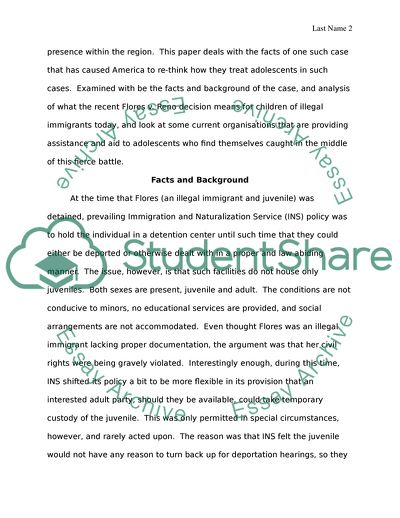Cite this document
(Flores v. Reno Essay Example | Topics and Well Written Essays - 2250 words - 1, n.d.)
Flores v. Reno Essay Example | Topics and Well Written Essays - 2250 words - 1. https://studentshare.org/history/1805053-flores-v-reno
Flores v. Reno Essay Example | Topics and Well Written Essays - 2250 words - 1. https://studentshare.org/history/1805053-flores-v-reno
(Flores V. Reno Essay Example | Topics and Well Written Essays - 2250 Words - 1)
Flores V. Reno Essay Example | Topics and Well Written Essays - 2250 Words - 1. https://studentshare.org/history/1805053-flores-v-reno.
Flores V. Reno Essay Example | Topics and Well Written Essays - 2250 Words - 1. https://studentshare.org/history/1805053-flores-v-reno.
“Flores V. Reno Essay Example | Topics and Well Written Essays - 2250 Words - 1”. https://studentshare.org/history/1805053-flores-v-reno.


